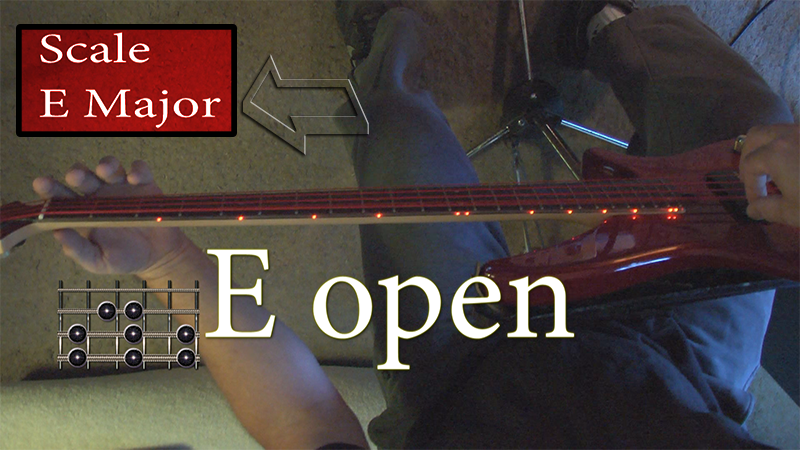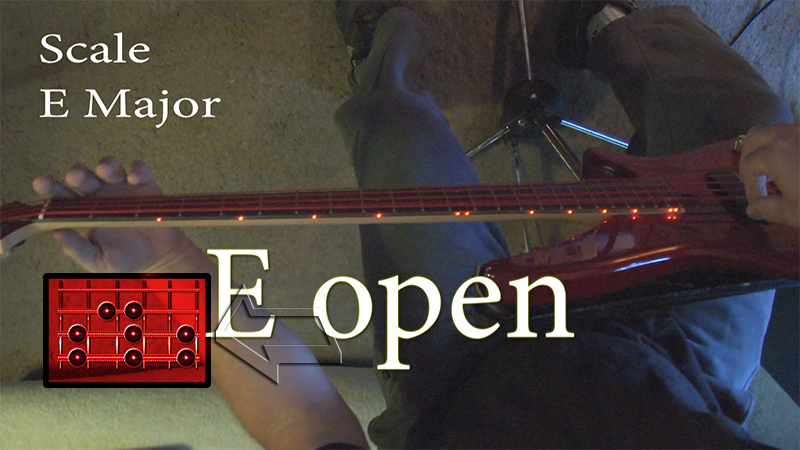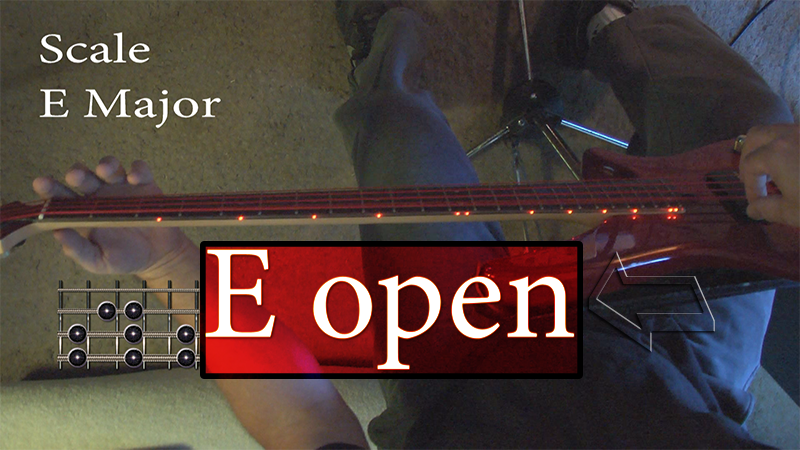
This is the AXEview Way Page
Here you can learn how to understand the AXEview window. If you just want to watch the patterns on the neck, you can do that and ignore all the other stuff on the screen. Sometimes that's the best way to start, just watch the fingers and play along. But if you want to start learning the scale patterns, names and notes, you have that too.
The Scales and the Root note

This is a great starting spot, the Root note is the starting note of the scale. We start at the bottom note and go to the top of the scale or the Octave. There are 8 steps in our scales, you can think of the starting note as 1, and 8 is the Octave, the same note you started at, only 1 Octave higher in pitch. Then we go back down the scale to the Root note. As we've said before you only need to know Major and Minor at this point. If it says E you will be starting on E, piece of cake right?
The Pattern

This is the raw pattern of the system, the blocked out pattern to show you the scale. Each of the dots are the 8 notes in the scale. If you need more information on how the patterns work, there's a video we just created on the home page.
The Actual Note Names

Not much more to say, look here as we go along and learn the actual notes names in our scales. We notate any time you are using an Open string, by listing it as E Open, A Open, D Open, or G Open. Now I will mention sometimes you will see notes with 2 names. How is this possible? They are called Enharmonic notes, not every note has them, but many do. The way we work with it in our system, is going up the scale we call it a "#" or Sharp note, going down a a scale we will call it "b" or Flat.
Notation On the Free Lessons Page
On the Free Lessons page you will see below the videos, each of the scales in more classic notation, and of course tab. These are just reminders that there are other options and ways to notate music. A well rounded player will be able to read and understand all these, but mastering those techniques take time and effort. We are not forgetting that area, but we're trying to go faster than these techniques. There are plenty of other options on the web and elsewhere that can cover those subjects better than we can here. Think of them as a legacy options, great to know, and will definately help you in your overall lifetime musical experience.

